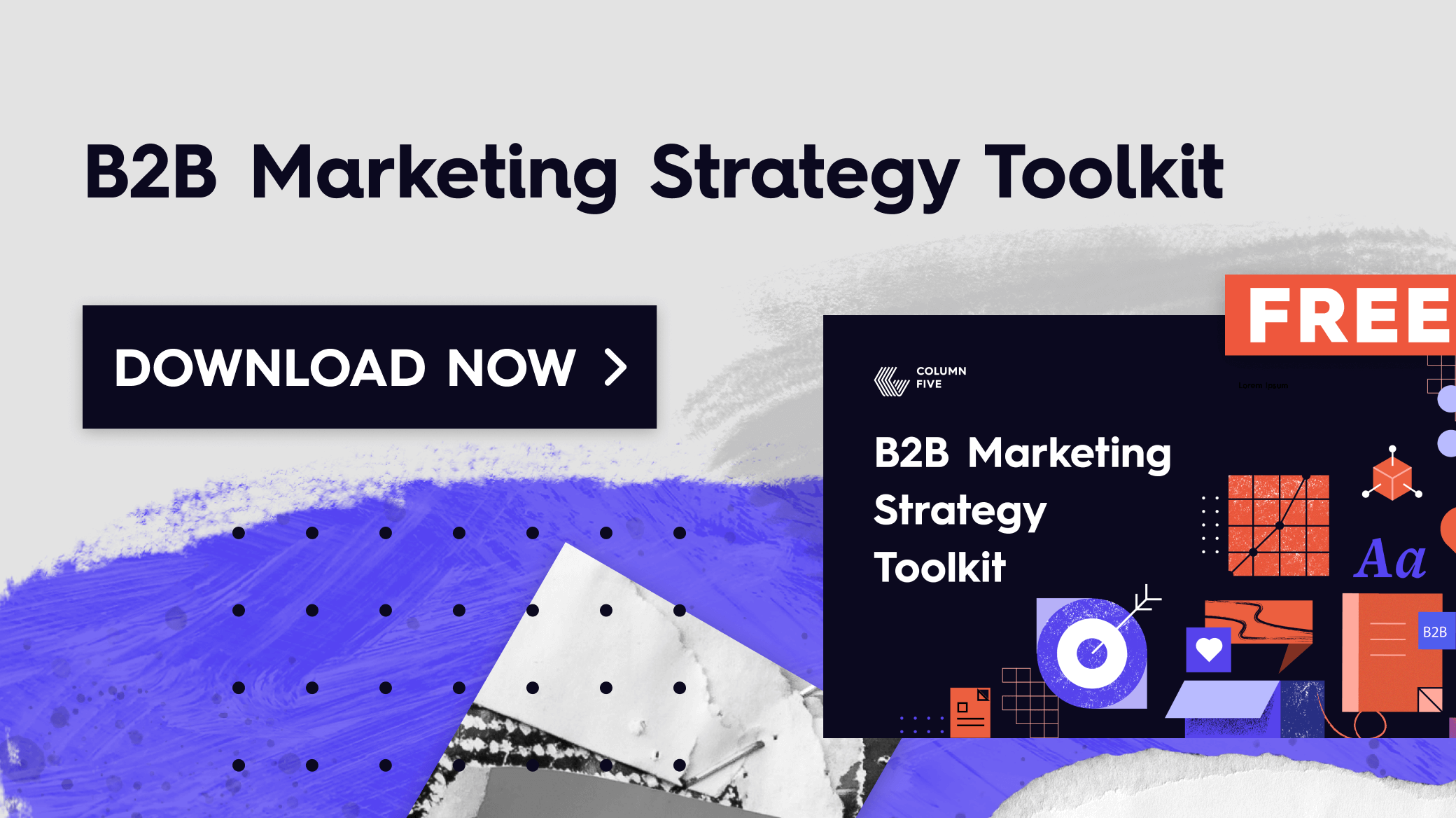As a cofounder of an agency that helps SaaS brands scale, I get a unique peek behind the curtain at the inner workings—and failures—of the world’s fastest-growing startups day in, day out. These are companies with grand ambitions and healthy funding, yet I see them make the same mistake over and over when it comes to their startup marketing. And that is…they aren’t marketing; they’re selling. And, surprise, they’re struggling.
- They aren’t getting the leads they want.
- They aren’t seeing the growth they want.
- They have cracks in the foundation before they’ve even built the house.
Why? Because SaaS leaders often build their business on three core beliefs that sabotage marketing before it can even get it off the ground. What I’m about to discuss here may sound familiar (and disheartening). But don’t get too discouraged. There is a way to right the ship if you take the right steps.
But first, let’s talk about how you may have gotten so far off course to start.

The 3 Myths That Hurt Your Growth-Stage Startup Marketing
SaaS founders and leadership teams are smart people, no doubt. But they can be shortsighted due to the overwhelming amount of pressure they’re under. With so much pressure to grow and produce, they adopt beliefs that seem to make sense on the surface but only make things more challenging in the long run.
Myth 1: “If there’s no product, there’s no business.”
When you sink everything into product development—and make product and features your main selling point—you are leading an uphill battle. What do you do when the competition out-innovates you or rips off your product entirely? How do you market who you are, make connections, and build a lasting customer base? The real secret to success is brand-building. Your brand is unique—your beliefs, values, story—and it is the one thing that can help you stand out in the world.
When you focus on “selling” your product only, you relegate yourself to a commodity, competing on features (and, ultimately, price). In essence, you become the Cutco knives of whatever industry you’re in. This is the hardest way to win a market and the easiest way to lose it.
Ultimately, by failing to build a brand, you forego the opportunity to compete on what drives people to buy: emotions. If you don’t have a brand that can draw people in (through marketing) and clearly communicate a promise of how life will be better after people become your customers, you’ll basically become a digital door-to-door salesperson.
Myth 2: Investing in brand is something to do “when the time is right.”
With their influx of startup dollars, founders tend to push brand and marketing further down the road so that they can focus on product development only. Waiting is a huge and costly mistake. By the time you get your brand strategy together, your competition will likely have lapped you, and you’ll be scrambling to make any impression in the marketplace.
Additionally, without a strong brand foundation, any marketing you do in the interim will likely be piecemeal and inconsistent, unable to tell a cohesive story to your target audience. (And, again, when you’re focusing on a product narrative, you aren’t marketing; you’re selling.)
54% of tech marketers have no documented strategy.
—Content Marketing Institute’s 2022 Technology Content Marketing Report
Myth 3: If you hire the right sales people, you’ll be able to create the momentum you need to grow your business.
Whether it’s intentional or not, on a subconscious level, leaders think this will enable them to plaster over the cracks of having not invested in brand and marketing. I’ve seen the cycle a million times.
- Leaders hire a sales team to do what they do best: sell.
- But soon they realize that salespeople need leads to convert to opportunities, and then to customers.
- And because their startup “marketing” is really just promoting the product and features (or even pricing), they struggle to attract the right leads. They don’t focus on relationship-building. They don’t focus on brand storytelling. They don’t even focus on the audience’s core interests or needs.
It’s around this time that companies bring on dedicated marketers. (And often that first marketer reports to a sales leader). The mentality at this stage is, “Let’s just use whatever brand we have and start marketing it. If things aren’t resonating, we can always fix them later.”
But at this point a hierarchy has been established:
- Sales serves product.
- Marketing serves sales.
This dynamic means that marketing is viewed as tactical at best (e.g., “we need to do whatever will get us more demos—fast”) and a means to an end at worst (e.g., “the sales team is complaining that they don’t have enough leads, so hopefully this will shut them up”). Meanwhile, Brand is viewed as a luxury (e.g., “we don’t have the time to worry about fluffy brand stuff now”).
By this point, marketers that do come on begin to daydream about what they could do with a clean slate opportunity to build their marketing from the ground up.
But they’re stuck. The brand is not established. The startup marketing strategy is not established. They face roadblocks in the form of team dynamics, company culture, and available resources. Team buy-in is increasingly difficult. Many feel like they’ve hit their lowest point. (I’ve seen many a CMO burnout after a year in these conditions.)
70% of tech marketers agree that their content team has been asked to do more with the same resources.
—Content Marketing Institute’s 2022 Technology Content Marketing Report
If any of these challenges sound familiar, know that you’re not alone. Everything I’ve described thus far is incredibly common. In fact, it’s the journey of nearly every early-stage SaaS company I’ve ever talked to.
The good news is the companies that find a way to persevere in spite of these challenges often have a truly exceptional product—one that people have bought and used and loved. They have lucked into a base, and the challenge now is to keep it by doing the right work. (It’s usually around the Series C stage that these problems become clear and the need to create a brand that has resonance and pulls people in is more important than ever.)
So how do you turn things around effectively?
How to Make Your Growth-Stage Startup Marketing Successful
If you’re ready to get your marketing back on track, it’s a simple prescription.
- Get your house in order. Brand is not a luxury; it’s the foundation for a successful business. To get back to basics, start with your brand strategy to identify your Brand Heart, messaging, and visual identity. These building blocks will help you ensure that everything you do going forward is aligned and in support of your goals. Use our free brand strategy toolkit to work through these elements and get your strategy on paper.
- Focus on your story. Stop simply creating content. Too many brands are busy churning out content for content’s sake, or pushing out pretty sales or benefits-specific content and calling it content marketing. People want to connect with your brand, not be sold to. Instead, hone in on what makes your company unique. Then, reiterate this uniqueness through content that makes your readers feel intelligent, validated, and confident that they’re talking to someone who’s gone through what they’re going through. Use these prompts to brainstorm better stories, and don’t forget to tell them in the right format.
- Do less but better. With a realigned brand you may be tempted to churn out the same volume of content, but be thoughtful and selective about the stories you tell. That doesn’t mean you can’t scale up eventually. But be intentional, test, and refine when you launch your new content strategy. You should also look at how to optimize your infrastructure to ensure you can produce high-quality content, consistently.
And if any part of this process is overwhelming, you should tap the right experts to help you through it. That said, according to the Content Marketing Institute, 75% of tech marketers struggle to find partners with adequate topical expertise. Thus, it’s crucial to partner with people that understand your industry and your goals. If you’re ready to hit the ground running, see our tips to find the right agency for you, take a look at our FAQs, or reach out directly.





